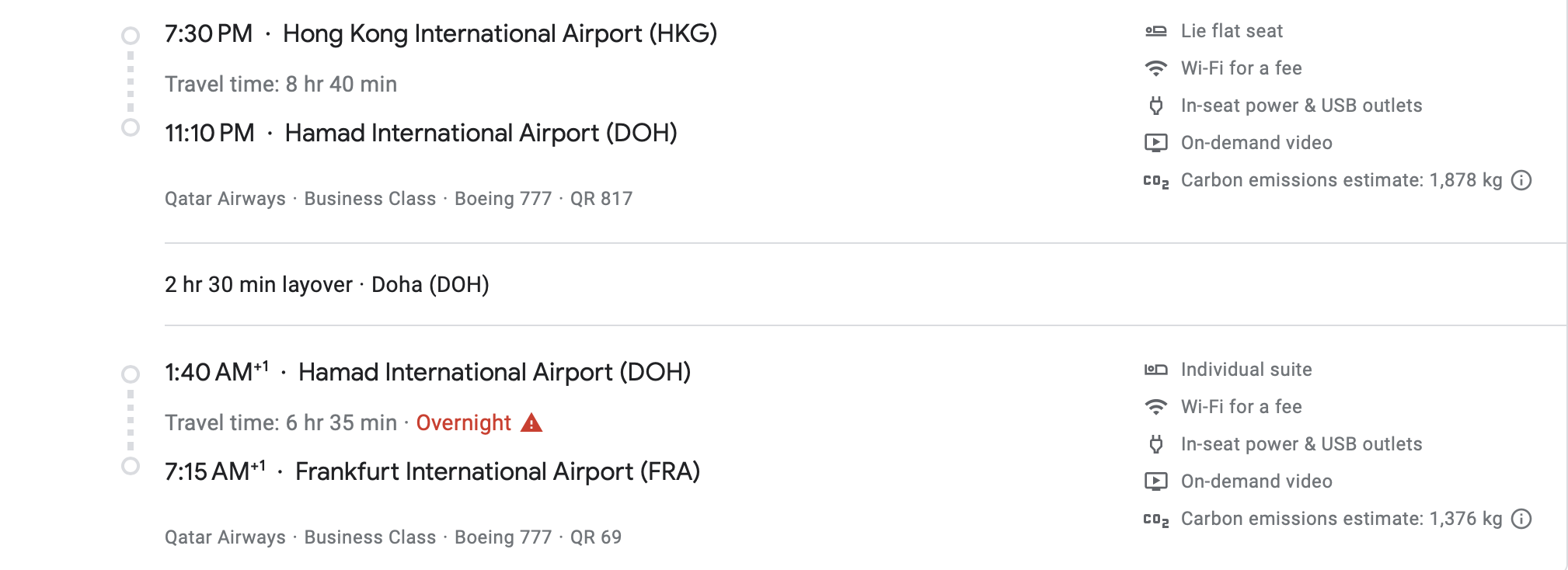It's called business class, so you'd think this premium price airline class would be a product highly-optimized for regular business travelers. Wrong.
Now when you travel long-haul frequently...sleep and productivity quickly become my two most important metrics. The getting-there takes a lot of time...so much that unless you are flying north and south, it always interrupts your sleep schedule. If you're going to spend 10 to 20 hours in transit, you need to be able to put that time to use. To me, this means getting quality sleep or getting work done. The main motivation for paying extra for business class is to get a bed that you can hopefully get some sleep in or an area that you can get work done.
Instead, airlines offer one or more elaborate, multi-course meals that break up the flight into small interrupted chunks of time that make it more difficult to sleep or work.
Why do airlines have one or more elaborate multi-course meals anyway? A multi-course meal might make sense if you're having dinner with a customer or colleague but what's the point of spending an 90 minutes or an hour eating course after course sitting by yourself?

Take a look at the above typical flight from Asia to Europe on one of the highly-rated gulf carriers. The first flight probably has a full meal and a pre-arrival lighter snack/meal. And the second has another full meal. The second flight is scheduled for 6 hours and 35 minutes. Of this, 20 minutes on each side is spent taxiing around on the ground. So lets say we have 6 hours of time in the air. Then there's the time climbing and descending after take off and before landing...let's say that's another hour total. Of the remaining 5 hours, about 90 minutes goes towards the meal service. That leaves three or maybe three and half hours left to actually sleep or get any work done. Not a lot.
In fact, this is the very similar on longer flights because they just add more meal services...it becomes difficult to get an interrupted period of time to sleep more than a few hours at a time.
One option is, of course, to eat before you board and opt out of the onboard meal. But it seems silly to spend even more of your time arriving early to eat in a lounge when you're already paying so much for a flight. If business class airlines were really trying to help business travelers, why don't they offer sandwiches with the boarding drink as an option for those who want to solve their hunger problem in a business-like fashion and go to sleep or use their time more productively?
My guess is that airlines are conflicted. On the one hand, they're really just buses in the air trying to get people from point A to point as quickly and painlessly as possible. But on the other hand they feel like they're in the experience business...selling luxury experience but calling it a "business" product. Because the airlines competing in these long-haul markets are almost always state-owned or state-subsidized and largely protected from competition, they get away with offering these confused products and can avoid being forced to make a decision as to what business they're in.
One only needs to look at competitive markets like the domestic EU market to learn that when forced to compete, airlines inevitably find that we consumers...even business consumers...prefer that they be in the bus business. We can buy better experiences than business class in an aluminum tube a million other places, we just need the airlines to get us there...like a bus.

